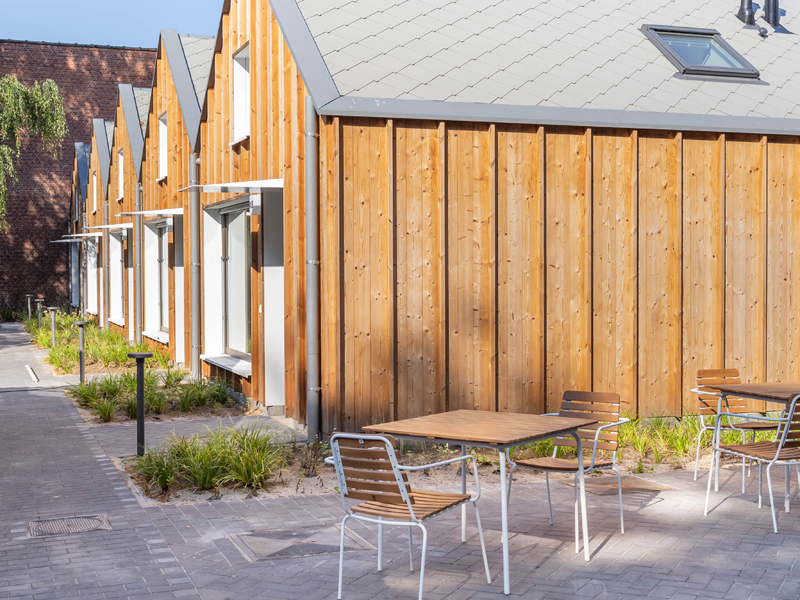Learning from innovative care architecture to design for humane detention
Belgian prisons are facing structural problems like overcrowding, outdated infrastructure, and lack of privacy. Architecture is intrinsically linked to the pain and harm inflicted by incarceration. However, a shift in attitude is growing towards prisoners and the purpose of prisons, which are increasingly viewed as places of rehabilitation rather than punishment. Despite this evolution, a gap remains between theory and practice. Due to the inhumane conditions in (especially older, 19th-century) prisons, Belgium was repeatedly condemned by the European Court of Human Rights and received critical reports from the European anti-torture committee.
Although detention differs considerably from residential care, similar principles are circulating that characterize current social evolutions (e.g., normalization, (re)integration). Instead of starting from existing prison architecture and examining how it can be updated to current evolutions, this project starts from innovative residential care architecture and examines how it should be adapted to suit the context of detention. It combines case studies of innovative residential care and detention projects, with participatory action research with future users. This will result in spatial concepts for humane detention, demonstrated in one or more design proposals for the first Belgian Detention House, and methods/techniques to gain support for such houses with and amongst various stakeholders from the start of the design process.
This collaborative project between Research[x]Design and the Leuven Institute of Criminology (LINC) is supported by the Research Foundation Flanders (FWO), and conducted by Céline Ramioul, Koen Coomans, Jasmien Kinnaer, Alana Nysten and Ine Werckx under supervision of Ann Heylighen, Margo Annemans and Tom Daems.
master's theses
- Werckx, I. (2024). The role of architecture in more humane detention. Exploring available materials to compare mother-child detention practices in Europe. Leuven: KU Leuven. Faculteit Ingenieurswetenschappen.
Nysten, A. (2024). Ruimte voor begeleiding van jongeren in residentiële jeugdhulp. Leuven: KU Leuven, Faculteit Ingenieurswetenschappen.
Kinnaer, J. (2023). Ruimte voor re-integratie: De rol van architectuur in ervaringen met transitiehuizen. Leuven: KU Leuven. Faculteit Ingenieurswetenschappen.

